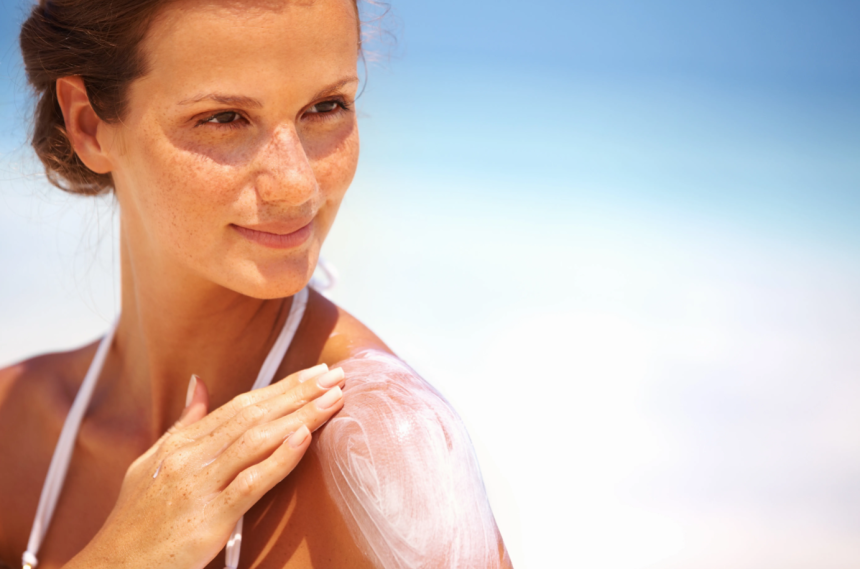As the biggest organ in your body, the skin protects you from harmful bacteria and viruses and plays an important role in maintaining a constant internal temperature. Even while your skin is natural sunscreen, you must take precautions to protect it from the sun.
Your skin is at risk for many issues if you don’t use sunscreen. So, here are the benefits you can experience when applying sunscreen daily.
1. Lessen the Visible Signs of Aging
Sunscreen is your ally in the fight against the visible indications of aging. Without sunscreen, your skin’s collagen and connective structures are vulnerable to UV radiation, which can cause your skin to lose suppleness and develop wrinkles.
2. Reducing the Visibility of Sunspots
One of the causes of sunspots—also called “age spots” or “liver spots”—is prolonged exposure to the sun’s ultraviolet (UV) radiation, which exacerbates the appearance of aging. Sunspots, which can be any shade of brown, are flat patches of discolored skin that form due to hyperpigmentation. The following parts of the body are susceptible to sunspots:
- Arms
- Back
- Face
- Hands
- Shoulders
3. Take Precautions Against Sunburn
A severe burn could result from unprotected exposure to UV light, found in tanning beds and the sun. Increased sunspots and skin damage could result from prolonged sun exposure without protection.
Another factor that can raise the likelihood of skin cancer is getting a sunburn. Wearing sunscreen at all times is essential, especially on cooler, cloudier days, because sunburns usually take a few days to cure.
4. Minimize the Possibility of Skin Cancer
Wearing sunscreen regularly is a great first line of defense against skin cancer. The Centers for Disease Control (CDC) recommends a broad-spectrum sunscreen with an SPF of 15 or higher for protection from ultraviolet radiation; obviously, a higher SPF is better.
Additionally, be sure to reapply sunscreen throughout the day for maximum protection, such as:
- After being in the sun for over two hours
- Following a swim or workout
- Upon drying off
5. Prevent Broken Blood Vessels
Sunlight can weaken the walls of blood vessels in the skin, leading to telangiectasias and other similar skin lesions. Bruising and bleeding are symptoms of blood vessel narrowing.
How Does Sunscreen Work?
Sunscreen contains various chemicals blocking ultraviolet (UV) rays to reduce the UV radiation your skin absorbs. There are primarily two types of these ingredients:
- Chemical Sunscreens: Soak up the sun’s rays just like a sponge. Octisalate, avobenzone, and oxybenzone are among the components that make up these.
- Physical Sunscreens or Mineral Sunscreens: Reflect the sun’s rays into space. Two of these are titanium dioxide and zinc oxide.
Importance of SPF
You have read about applying sunscreen with SPF 15 or higher on the list above. But have you ever wondered what this SPF is?
SPF stands for “sun protection factor,” which measures how well a sunscreen blocks UVB rays.
The SPF number indicates how long it would take for UVB radiation to cause skin reddening when using that sunscreen. For instance, following the instructions for an SPF 30 sunscreen would result in a 30-fold delay before you would feel any sunburn compared to going without sunscreen.
Sunscreens with an SPF 30 offer a 97% UV ray blockage rate. Then, an SPF 50 blocks around 98% of rays, and an SPF 100 blocks roughly 99%. Thus, higher SPFs block more rays but not by much.
Under no circumstances does sunscreen provide complete protection. Keep in mind that SPF only applies to UVB radiation. Consequently, seek sunscreens that protect from UVA and UVB rays.
Proper Ways of Applying Sunscreen
Sunscreen is effective, but proper application is key. Remember these guidelines:
- Apply a broad-spectrum sunscreen that shields your skin from UVA and UVB radiation.
- Use it half an hour before venturing outdoors. This way, the sunscreen has more time to penetrate the skin and provide enough protection.
- Apply an adequate amount. This amount is around a quarter-sized dollop for the face and enough to fill a shot glass for the entire adult body.
- Always remember to cover your exposed scalp, ears, and lips.
Protect Your Skin From the Sun
Sunscreen is a great example of how the adage “prevention is better than cure” applies. Use sunscreen like a superhero cape to protect your skin from the sun’s damaging rays. In other words, apply sunscreen liberally before entering the sun or even running errands.















